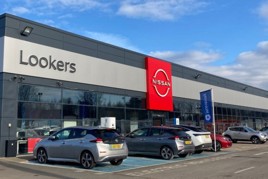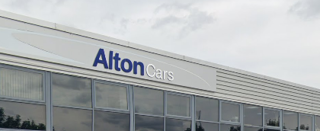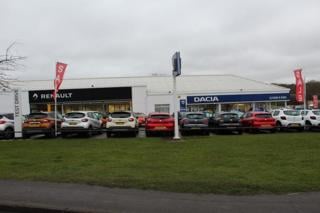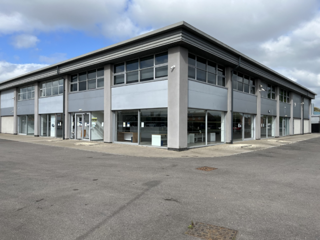US and Canadian investors are looking for opportunities in the UK’s automotive retail market and further acquisitions are expected to take place this year.
UK motor retail industry expert and dealmaker David Kendrick has joined into a partnership between UHY Hacker Young with Toronto-based DSMA (Dealer Solutions Mergers and Acquisitions) to help link UK dealer group owners looking to exit with a North American client base that is sitting on ‘a lot of cash and are looking to grow’.
DSMA has completed around 457 transactions since it started in Canada in 2012, before expanding into the US in 2018.
US and Canadian investors are looking for opportunities in the UK’s automotive retail market and further acquisitions are expected to take place this year.
UK motor retail industry expert and dealmaker David Kendrick has joined into a partnership between UHY Hacker Young with Toronto-based DSMA (Dealer Solutions Mergers and Acquisitions) to help link UK dealer group owners looking to exit with a North American client base that is sitting on ‘a lot of cash and are looking to grow’.
DSMA has completed around 457 transactions since it started in Canada in 2012, before expanding into the US in 2018.
UHY Hacker Young has been involved in around 40% of UK automotive retail transactions and also sees this co-operation as a potential opportunity to open the door from clients from the Middle East to expand their base of UK auto retail investments and enter the North American market too.
Just to put things into perspective about the North American market - DSMA is currently working on the sale of a 10-site group in the New York state area for $1 billion (£790 million).

Those figures may raise some eyebrows in the UK for a group of that size, but it highlights the large difference between the North American automotive retail market and the UK.
It’s one of the biggest reasons the UK has become such a big target for international investment, due to the level of value and return it can offer.
For example, US dealer groups can attract 8x EBIT (earnings before interest and taxes) instead of 3-4x EBIT in the UK.
Farid Ahmad, founder and chief executive of DSMA, said: “I come from the UK myself and I used to work at Currie Motors, so I’ve got a real attachment to the UK.
“North American businesses have a lot of cash and they’re looking to grow. The big differences are the multiples of earnings that we’re selling businesses for here are half in the UK.
“It’s a financial gain for these US companies. The automotive industry in the US and Canada can have a bit of a herd mentality. They want to know how you do business in the UK.
“We’re now there to explain that alongside the team at UHY.”
 Lithia’s takeover of Pendragon and Alpha Auto Group’s acquisition of Lookers have been extremely high profile examples of North American investment in the UK.
Lithia’s takeover of Pendragon and Alpha Auto Group’s acquisition of Lookers have been extremely high profile examples of North American investment in the UK.
However, Kendrick, UHY’s chief executive, is confident these most recent North American investments (Group 1 and Penske are also well established here), will not be the last.
AutoNation, another US investor, is widely expected to be actively looking at UK opportunities after pulling out of the race to buy Pendragon in October last year. There are other less high profile North American groups looking for opportunities too.
Discrepancy in multiples
Ahmad believes the big difference in multiples between North American and UK automotive retail businesses is down to the power dynamic between the retailer and the original equipment manufacturer (OEM).
He said: “In the UK and Europe, the dealer agreement, in my opinion, is far more controlled by the OEM.
“In North America you have long term agreements and dealers here have much more control on what happens with their future, mainly due to the lobbying power of the National Automobile Dealers Association (NADA).”
Ahmad said his clients are driven by earnings and asset value.
He said: “It’s all about the earnings you can make and what you would have to pay for a multiple.
“For example there’s a group UHY brought to our attention in the UK that is making £20m profit on net earnings. If that same dealer group was in North America, we would probably get £100m in goodwill.
“Americans are probably some of the boldest entrepreneurs in the world and they’re not going to be able to resist the kind of investment opportunity that is available in the UK.”
 Kendrick said UK automotive PLCs have been historically undervalued for a long time.
Kendrick said UK automotive PLCs have been historically undervalued for a long time.
He said: “UK auto has been deemed high risk, because it’s categorised as high street retail, which it’s not. It’s also heavily property linked too. There are different views on the property markets and the ups and downs with that.
“In the nicest possible way, the sooner the UK PLC involvement in the UK ceases, the better. I think multiples will increase because there will be no benchmarks to compare it against.”
Agency model culture shock
While agency model plans are facing delays and pauses, OEMs are still moving in the direction of introducing them more widely in the future.
This is obviously quite different to how things operate in the North American markets, which Ahmad said can be a bit of a culture shock for potential investors.
 Ahmad said: “We do prepare them for that, but it could create the biggest resistance for the average North American dealer group coming to the UK.
Ahmad said: “We do prepare them for that, but it could create the biggest resistance for the average North American dealer group coming to the UK.
“But my prediction is that the agency model will fail, because of the relationship between the manufacturer and the unions that build those vehicles, as well as the inventory cost.
“If you add that all together, I think there will be an agency rethink. The reason why they’re going for agency is they want to replicate the return Tesla is getting on sales. They want to grab some of that profit back.”
Kendrick said that while the agency model may be deemed as a threat to US and Canadian investment in the short term, he believes long term investors aren’t as concerned due to the certainty of knowing that automotive retail specialists networks will need to remain in place and profitable in order for OEMs to go to market.
He said that agency isn’t the main determining factor for UK businesses looking to exit either.
Kendrick said: “From the 20 or 30 businesses that we talk to a year that are close to exiting, around 90% have different reasons, whether that’s retirement, getting the most money for their business or just downsizing. There are so many iterations that can be a driving force for looking for an exit.”
Client confidentiality
Kendrick and Ahmad said it’s critical that in any negotiations around acquisitions, there is 100% confidentiality. It’s something UK dealer groups may be nervous about, particularly if they’re exploring early discussions around an exit strategy that may be two or three years away.
He said: “Any discussions we’re having have very strong non-disclosure agreements in place and there’s huge respect for client confidentiality.”
Likewise, Ahmad said it’s impossible to grow in the mergers and acquisitions business if you have a reputation for breaking confidentiality. These early discussions are already proving fruitful.
Kendrick added: “There’s been a lot of interest from across the pond already. We’ve already had a number of conversations with DSMA with businesses in North America that we had not come across before that are seriously interested in investing in the UK. It’s early days but the signs are very exciting.”
Login to continue reading
Or register with AM-online to keep up to date with the latest UK automotive retail industry news and insight.





















Login to comment
Comments
No comments have been made yet.